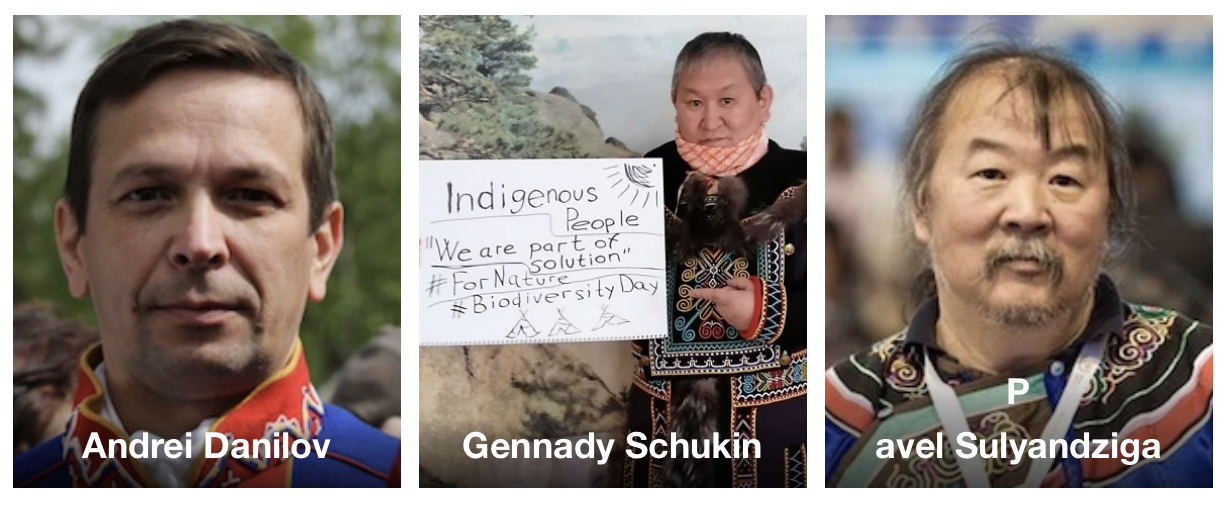German corporations must demand that Russian extractive company Nornickel respect indigenous rights and environmental standards – or end business deals
After more than 21,000 tons of diesel leaked from a power plant tank in May 2020, causing the largest oil spill in the Russian Arctic to date, the company responsible, Nornickel (Norilsk Nickel), had to pay Russia’s highest fine to date.

In the satellite image, diesel oil spilled in the Ambarnaya River on May 31, 2020 is easily recognizable by its red color
But this is still a long way from repairing the damage, let alone addressing the causes. In addition to the sensitive ecosystem, it is above all the indigenous groups in northern Russia that have to suffer the consequences of Nornickel’s ruthless business model.
“It has been a year since Nornickel discharged diesel fuel into the rivers and lakes of the Taimyr Peninsula. The communities have been without fish since then and have not received any compensation. They do not know how they will live. As before, Nornickel refuses to talk to the affected indigenous communities.”- Gennady Schukin, Chairman of the Association of Indigenous Communities of the Taimyr Peninsula
German companies have known for years about Nornickel’s violations of international social and environmental standards. But the company continues to get loans from Commerzbank and Deutsche Bank without any problems. BASF is trying to improve standards, as nickel is particularly important for electromobility – so far, without serious success.
“What did Nornickel leave behind on the Kola Peninsula? Our territory was destroyed. But what does the company do? Nothing. It pretends to cooperate with us, but concludes secret contracts without consultation. We have no way to revive our traditional ways of life. Nornickel does not respect the rights of indigenous peoples.” – Andrei Danilov, Director of the Sámi Heritage Foundation, Montschegorsk
DWS, the asset management company is belonging to Deutsche Bank, on the other hand, has drawn the first consequences, as the identified grievances have not been remedied. DWS has removed Nornickel from a large proportion of its funds. At shareholder meetings, but also in our direct dialogs, we will continue to call for concrete steps to increase the pressure on Nornickel.
“It is very important for German companies building the green economy today to comply with international standards for indigenous peoples’ rights when working with their suppliers. It cannot be that some countries and communities have a clean living environment while indigenous peoples whose lands are mined for the green economy are left amidst devastated lands and ‘moonscapes’.” – Pavel Sulyandziga, Chairman of the Batani Foundation

Source – Association of Ethical Shareholders Germany
Answers DWS on Nornickel from the Q&A session of the 2021 DWS Annual General Meeting
Anita Schneider: Thank you very much. We come back to Mr Kreuzkamp and a very comprehensive question. The umbrella Organisation of Ethical Shareholders ask a whole host of questions with regard to the Russian group Norilsk Nornickel, who is claimed to infringe – to be responsible for several catastrophes and the violation of indigenous rights. So, in which – how far is DWS invested in Nornickel? Which risks of Nornickel were known to DWS? What were the arguments saying that Nornickel was a responsible and trustworthy company? What were the concrete measures and researches taken by DWS when it comes to international, social and ecological standards? Because Nornickel is active in an ecologically sensitive area. What measures has DWS taken after the catastrophic environment and human rights impact of the activities of Nornickel in the Arctic Circle in order to avoid or mitigate further damage done by Nornickel? Is there an engagement dialogue with Nornickel on ESG and sustainability, or are there plans to have such a dialogue? If yes, which concrete topics are part of the dialogue? If no, why don’t you think a dialogue is not important? Are there clear criteria when or under which concrete conditions DWS would sell the shares of Nornickel if the company does not speedily improve its eco-balance and the respect of indigenous rights speedily and comprehensively?
Stefan Kreuzkamp: Well, in the framework of the Smart Integration process that I already mentioned, we have been in a dialogue with Nornickel for two years now. In very concrete terms, we addressed the management of ecological risk. Because there is no discernible progress, we clearly reduced our inventory in Nornickel. Impassive investment vehicles, however, where we reproduce a benchmark or index, this is not possible. In our engagement database, we take stock of the status and also report on this in our active ownership report. Please bear with us that DWS cannot give you any further details on individual companies.
Anita Schneider: Well, we have received a follow-up question for Mr Kreuzkamp and it’s from the association of critical shareholders. Let me read this out to you. In your answer regarding the dialogue with Nornickel, you mentioned that you had significantly reduced your shareholder in active management. Now, does this also include a potential future full divestment or is there still a schedule for Nornickel to achieve improvements? Thank you very much.
Stefan Kreuzkamp: In the active mutual funds which are subject to the Smart Integration process, the stocks were sold – were fully sold due to lack of progress. For the remaining shareholdings in passive investments and the very low shareholdings in active investments which are not subject to a Smart Integration process, now, for them we will still try to remain in an active dialogue with the company in order to convince them to make more progress in the area of sustainability. As part of our engagement progress, of course, we reserve the right to take further escalation measures.
Source – group.dws.com

